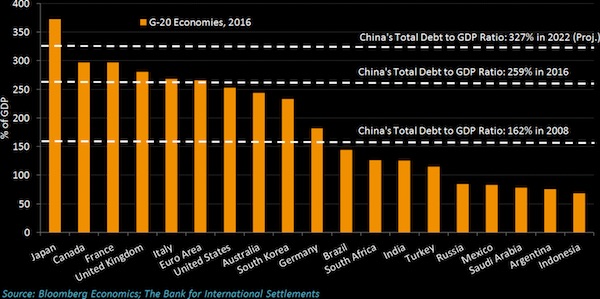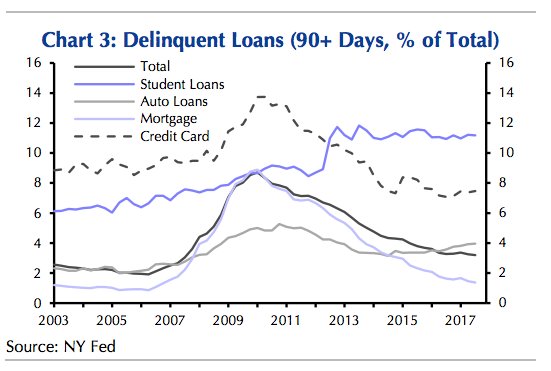
Vincent van Gogh Weeping woman 1883

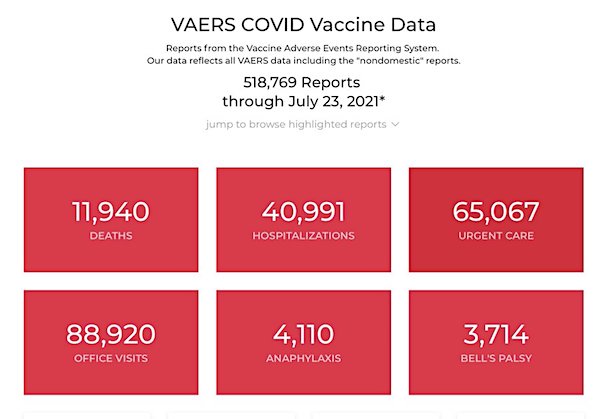
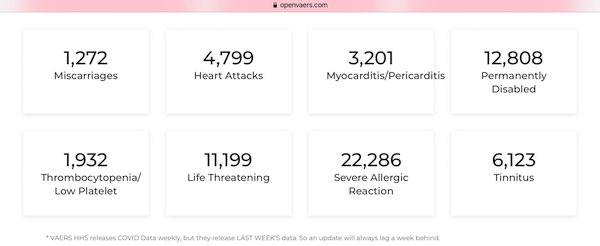
Brian Tyson
Dr. Brian Tyson MD about Ivermectin…. pic.twitter.com/v1L5O9PNs6
— Camus (@camus37) July 29, 2021

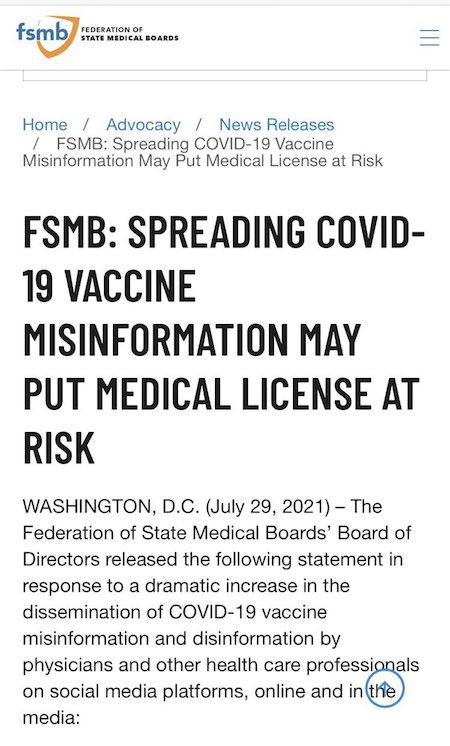


It was either that or 350%. They decided to lowball it.
• UK Gov’t Panel: Covid Mutation With 35% Death Rate ‘Realistic Possibility’ (RT)
A British government science panel has claimed that a coronavirus variant could emerge with a 35% fatality rate – akin to that seen in the Middle East Respiratory Syndrome (MERS) – noting that vaccine booster doses may be needed. A Friday report by the Scientific Advisory Group for Emergencies (SAGE) looked at a series of hypothetical scenarios related to Covid-19 variants, finding it a “realistic possibility” that a mutation could appear with a case fatality rate comparable to SARS (10%) or MERS (35%), both of which belong to the coronavirus family.
While the body said that existing vaccines would remain effective against “serious disease” from such a variant short of “significant drift” or change in the virus’ spike proteins, it nonetheless added that “an increase in morbidity and mortality would be expected even in the face of vaccination,” as the jabs do not “fully prevent infection in most individuals.” The report suggested a number of ways to deal with a more deadly mutation, including “vaccine booster doses to maintain protection against severe disease,” as well as measures to limit the introduction of new variants from abroad. SAGE also considered the likelihood of a variant that “evades current vaccines,” saying that could occur in several different ways. The most likely cause would be a form of genetic variation known as “antigenic drift,” which happens when a virus mutates to a point when antibodies that prevented infection caused by previous strains no longer work.
The panel deemed that “almost certain” to happen to some degree. A “worst case” scenario described in the paper might happen when the immune system will no longer be able to produce antibodies for new emerging variants, either due to its past contact with the virus or as result of “previously experienced vaccines.” Such a doomsday scenario would make it “difficult to revaccinate” patients, however the researchers concluded that outcome is “less likely.” The same agency released a separate report on vaccines on Friday, which found that immunity is “highly likely” to diminish over time, suggesting “there will be vaccination campaigns against SARS-CoV-2 for many years to come.”
However, the report on variants also noted the coronavirus could follow an evolutionary path that sees it become more transmissible but less virulent, with SAGE drawing a comparison to “common colds.” It added that while this is “unlikely in the short term,” it could later become a “realistic possibility” as the virus fully adapts to its human hosts SAGE concluded that the UK should continue to “proactively support” a global vaccination drive, saying that could help to reduce the likelihood of “dangerous variants emerging in other parts of the world,” while also urging for increased investment in viral surveillance to keep tabs on new mutations.

Not the internal document leaked on Thursday, but this one from Friday.
• CDC Releases Study Showing 3/4 Delta Cases Are Among The Vaccinated (RT)
The CDC has released a study backing up its decision to recommend indoor masking for both vaccinated and unvaccinated Americans. The study examined one outbreak and found three-quarters of people testing positive were vaccinated. The Centers for Disease Control and Prevention (CDC) revised its masking guidelines on Tuesday, urging all Americans in areas with high Covid-19 transmission to mask up when indoors, regardless of vaccination status. Mask mandates in companies, government departments, and certain local jurisdictions followed, as CDC Director Rochelle Walensky insisted the decision was made on the back of fresh scientific evidence. The CDC released that evidence on Friday. In a study of 469 cases of Covid-19 that broke out in the resort town of Cape Cod, Massachusetts, earlier this month, 74% occurred in “fully vaccinated persons.”
Four out of five patients hospitalized were fully vaccinated, and on average the inoculated had completed their two rounds of doses only 86 days before infection. The cases studied occurred in people vaccinated primarily with Pfizer and Moderna shots, with a smaller number having received Johnson & Johnson’s one-dose jab. No one vaccine was singled out as providing better or worse protection, and none appeared to prevent symptoms from developing. Some 79% of vaccinated patients were symptomatic, the study noted. Lab testing revealed that 90% of all the Cape Cod infections involved the Delta variant of the coronavirus. The report lends weight to the argument that the current crop of vaccines aren’t as effective against the Delta variant, although the CDC and WHO both insist that vaccination is effective against “severe disease and death” from the virus, to quote WHO technical lead Maria Van Kerkhove in a briefing earlier on Friday.
[..] The study appears to negate the argument by top health officials that unvaccinated Americans are responsible for the fourfold rise in Covid-19 cases in the US since June. “This is an issue predominantly among the unvaccinated, which is the reason why we’re out there, practically pleading with the unvaccinated people to go out and get vaccinated,” White House coronavirus adviser Dr. Anthony Fauci told CNN on Sunday, adding that the US is currently moving “in the wrong direction” with regard to stamping out Covid-19. Whether mask mandates will slow the spread of the Delta variant will be borne out with time. Beyond requiring masks and pressuring Americans to get vaccinated, the White House is running out of options.

They can’t get their message straight.
Vaccine mandate? Useless.
• White House Covid-19 Spokesman Yells At Media For Quoting CDC Documents (RT)
Even as they quoted internal CDC documents backing the renewed mask mandates due to the rise in Delta variant Covid-19 cases, both the New York Times and the Washington Post got a tongue-lashing from the White House. “Vaccinated people do not transmit the virus at the same rate as unvaccinated people and if you fail to include that context you’re doing it wrong,” Ben Wakana, deputy director of strategic communications for the White House Covid-19 response team, tweeted at the New York Times on Friday – in all caps – unhappy about the paper’s coverage of the new findings from the Centers for Disease Control and Prevention (CDC). Wakana also had words for the Washington Post, which first published the CDC documents, calling their coverage “completely irresponsible” and countering it with CDC statements from three days prior.
The Twitter meltdown caught the attention of journalist Glenn Greenwald, who called it “super interesting” and suggested that “elite institutions” could find time “in between calling ordinary citizens stupid and selfish” to reflect on the “huge messaging failures, inconsistencies and lies that account for much distrust in official [Covid] messaging.” Wakana’s attempts to whip the corporate media into line follows Friday’s announcement by the CDC that claims 74% of people who recently got infected by the Delta variant of the coronavirus in a Cape Cod, Massachusetts resort were fully vaccinated. The Cape Cod study was “pivotal” in informing the decision to recommend indoor masking, said CDC Director Rochelle Walensky. While the White House embraced the masking guidelines earlier this week, it has continued to insist on vaccinations as the way forward and argue that the rise in cases was predominantly a problem “among the unvaccinated.”
Deputy Press Secretary Karine Jean-Pierre told reporters on Friday that a national vaccine mandate is “not under consideration at this time,” and that the US is “not going to head towards a lockdown.” Jean-Pierre specifically cited CDC’s Walensky as an expert the White House defers to on virus matters. “We listen to the scientists, and they tell us that it’s the Delta variant,” she told reporters. “That’s what they’re telling us… These are scientists, they’re the experts.” Speaking with Fox News on Friday afternoon, Walensky said a federal vaccine mandate might be in the cards. “That’s something that I think the administration is looking into,” she said, only to backtrack later and “clarify” that there will be no such mandate.
Walensky kids
CDC Director admits live on air that the "delta variant" doesn't make kids any sicker… pic.twitter.com/0cNRyJBBMp
— Camus (@camus37) July 30, 2021

“..it may last for years or even decades and may not be limited to Covid-19 either; any virus that can cross-react with the binding antibodies would be enhanced.”
• Fauci *ADMITS* I Was Right In Spring of 2020 (Denninger)
Let’s be clear: Fauci has now admitted, on live camera, that a person with a breakthrough infection is just as dangerous as someone who was never vaccinated and gets infected. This was expected by anyone who has ever studied anything about viral disease and the use of non-sterilizing immunizations when infections are active in a community. We have known this all the way back to Polio and is why we insisted on a sterilizing vaccine (OPV) following the inactivated injected vaccine (IPV) in the United States until 20 years after we were declared polio-free. In addition it is exactly what is expected if a non-sterilizing vaccine produces both binding and neutralizing antibodies and we know, scientifically, that all the existing jabs do exactly that. When levels wane you still have binding antibodies and when the neutralizing level falls below the threshold to protect you now have an enhancement of the disease rather than protection.
A person who was never infected and not vaccinated does not have the binding antibodies and thus, while at risk, doesn’t get the enhancement. Now we have real-world evidence that in fact the jabs produce risk as immunity wanes and that said risk may exceed, on a personal level, what someone has who never been infected or vaccinated is exposed to. As I pointed out the case rate had peaked and was headed down — hard — before the first jab went into the first arm. That which you do after something happens can’t be due to whatever it is you did. Not one group saw that collapse come after vaccination and no sub-group, even the very old, reached even 20% coverage before the case rate was in the ditch Obviously vaccines did not stop Covid in the winter and thus there’s no reason to believe they will materially impact whatever variation may come around — now or in the future.
Got JabbersRemorse yet folks? It appears you may need to continually take boosters to avoid this and accept the risk of blood clots, strokes, heart attacks, PAH and other adverse effects not just once or twice but every six months to a year if not more-often! Oh, and if you choose not to the duration of your increased risk is not known — it may last for years or even decades and may not be limited to Covid-19 either; any virus that can cross-react with the binding antibodies would be enhanced. What I said was the correct path forward in early 2020 and have maintained since is:
• Protect the most-vulnerable who cannot protect themselves. This means locking in all care-givers in institutional settings for the elderly and medically infirm. Yep, you work there, you do not interact with the public until and unless you can prove seroconversion. Period. If we have to pay more to get people to agree to this so be it. It is what it is.
• Urge immediate intervention with suspected or believed effective drugs that are rationally safe at the first sign of infection. If you can buy or use something of statistically similar risk over the counter then you must be able to buy these over the counter on your demand to a pharmacist, with he or she checking for interactions with other drugs you may be taking and warning as appropriate, but with the choice being yours and nobody else’s. Period. The list of said drugs includes hydroxychloroquine, Ivermectin, budesonide, famotidine and a few others. Why? Because we had no reason to believe originally that natural infection was not sufficient to prevent, in nearly every case, re-infection with a serious or severe instance as that has always been true for every other respiratory pandemic virus and time has proved this up for Covid-19 as well. In short natural infection has now proved superior to vaccination (note that nobody is seriously claiming Delta and other “variants” evade natural immunity) and therefore in those who are at reasonably-low risk infection is preferred as the immunity it produces is at least equal and likely superior, with said infection mitigated as to severity as one chooses. MY ASS, MY CHOICE.
• For those at extremely high risk offer but not mandate whatever prophylactic(s) we can come up with. This includes the current jabs but certainly isn’t limited to them. For example there is some evidence that Ivermectin is effective as a prophylaxis. Vitamin D may be; there is a very strong association between Vitamin D deficiency and severe or fatal Covid infections but association is not proof of cause nor that correcting it would change outcomes. Nonetheless there is nearly zero risk to that path forward and, for Ivermectin, the data is that the serious adverse event risk is 1 in 600,000 people. That’s tiny and less than the risk from Tylenol, to name just one OTC drug in question. Again, the goal here is for infections to happen as they will but not result in serious outcomes as that is the path out of every pandemic through history and there is no evidence this one will be different.
• Those who are at statistically-zero risk of serious harm or death (e.g. healthy children) should be encouraged to live normally and expect to get the virus. Their natural immunity provides a “free of cost” firewall for everyone else. We are criminally insane to do anything that limits or otherwise attempts to prevent that.

2 months old but very relevant. And then they insert doubts. Antibodies for life, but do get a booster.
• Had Covid? You’ll Probably Make Antibodies For A Lifetime (Nature)
Many people who have been infected with SARS-CoV-2 will probably make antibodies against the virus for most of their lives. So suggest researchers who have identified long-lived antibody-producing cells in the bone marrow of people who have recovered from COVID-191. The study provides evidence that immunity triggered by SARS-CoV-2 infection will be extraordinarily long-lasting. Adding to the good news, “the implications are that vaccines will have the same durable effect”, says Menno van Zelm, an immunologist at Monash University in Melbourne, Australia. Antibodies — proteins that can recognize and help to inactivate viral particles — are a key immune defence. After a new infection, short-lived cells called plasmablasts are an early source of antibodies.
But these cells recede soon after a virus is cleared from the body, and other, longer-lasting cells make antibodies: memory B cells patrol the blood for reinfection, while bone marrow plasma cells (BMPCs) hide away in bones, trickling out antibodies for decades. “A plasma cell is our life history, in terms of the pathogens we’ve been exposed to,” says Ali Ellebedy, a B-cell immunologist at Washington University in St. Louis, Missouri, who led the study, published in Nature on 24 May. Researchers presumed that SARS-CoV-2 infection would trigger the development of BMPCs — nearly all viral infections do — but there have been signs that severe COVID-19 might disrupt the cells’ formation2. Some early COVID-19 immunity studies also stoked worries, when they found that antibody levels plunged not long after recovery.
Ellebedy’s team tracked antibody production in 77 people who had recovered from mostly mild cases of COVID-19. As expected, SARS-CoV-2 antibodies plummeted in the four months after infection. But this decline slowed, and up to 11 months after infection, the researchers could still detect antibodies that recognized the SARS-CoV-2 spike protein. To identify the source of the antibodies, Ellebedy’s team collected memory B cells and bone marrow from a subset of participants. Seven months after developing symptoms, most of these participants still had memory B cells that recognized SARS-CoV-2. In 15 of the 18 bone-marrow samples, the scientists found ultra-low but detectable populations of BMPCs whose formation had been triggered by the individuals’ coronavirus infections 7–8 months before. Levels of these cells were stable in all five people who gave another bone-marrow sample several months later.
“This is a very important observation,” given claims of dwindling SARS-CoV-2 antibodies, says Rafi Ahmed, an immunologist at Emory University in Atlanta, Georgia, whose team co-discovered the cells in the late 1990s. What’s not clear is what antibody levels will look like in the long term and whether they offer any protection, Ahmed adds. “We’re early in the game. We’re not looking at five years, ten years after infection.” Ellebedy’s team has observed early signs that Pfizer’s mRNA vaccine should trigger the production of the same cells4. But the persistence of antibody production, whether elicited by vaccination or by infection, does not ensure long-lasting immunity to COVID-19. The ability of some emerging SARS-CoV-2 variants to blunt the protective effects of antibodies means that additional immunizations may be needed to restore levels, says Ellebedy. “My presumption is, we will need a booster.”

“..the human immune system produces a multitude of neutralizing antibodies, while also activating certain T and B cells to establish immune memory.”
• Recovered COVID-19 Patients Possess Robust Immunity To Virus (Fed.)
A newly released study conducted by Emory University suggests recovered COVID-19 patients possess long-term immunity to the respiratory virus months after infection. Published in Cell Reports Medicine, the comprehensive study analyzed 254 individuals with mostly mild to moderate symptoms of SARS-CoV-2 infection over an eight-month period and found that patients possessed “durable broad-based immune responses” to the virus after recovering from an infection. “The study serves as a framework to define and predict long-lived immunity to SARS-CoV-2 after natural infection,” said Emory Vaccine Center director Rafi Ahmed. “We also saw indications in this phase that natural immunity could continue to persist.” Ahmed served as a lead author on the study.
The study goes on to note that in response to an active infection in the body, the human immune system produces a multitude of neutralizing antibodies, while also activating certain T and B cells to establish immune memory. Ahmed denotes that these developments make a strong case for some form of lasting immunity to the virus. “We saw that antibody responses, especially IgG antibodies, were not only durable in the vast majority of patients but decayed at a slower rate than previously estimated, which suggests that patients are generating longer-lived plasma cells that can neutralize the SARS-CoV-2 spike protein,” he said.
Moreover, the analysis also demonstrates that not only are recovered patients likely to possess lasting immunity to existing SARS-COV-2 variants, but that “SARS-CoV-2 infection also boosts antibody titers to SARS-CoV-1 and common betacoronaviruses.” “While pre-existing exposure and antibodies against HKU1 and OC43 betacoronaviruses are common in adults, pre-existing SARS-CoV-1 exposure is rare and antibody levels to SARS-CoV-1 spike protein were very low (essentially negative) in the pre-pandemic healthy controls,” the study says. “However, SARS-CoV-1 spike-reactive antibodies increased significantly after SARS-CoV-2 infection.” The report later goes on to conclude that taken together, the results of the study “suggest that broad and effective immunity may persist long-term in recovered COVID-19 patients.”

Were the teachers elected?
• DeSantis: No Mandates, No Lockdowns, No Restrictions, No School Closures (CTH)
Florida Governor Ron DeSantis delivered a statement about the future of Florida today while visiting Cape Coral on the Southwest coast. During his remarks, the governor highlighted his support for parent’s rights, taking the position that parents should be the ones making decisions for their children on masks, schools and vaccines, not government. Governor DeSantis promised Florida residents there will be no lockdowns, no mandates, no restrictions and no school closures. Additionally, the governor urged all local communities to follow common sense science and said he will soon issue an order allowing parents or guardians to choose whether their child wears a mask in schools.
“As of today, very few [school districts] are requiring it. Nevertheless, we have a lot of push from the CDC and others to make every single person, kids and staff have to wear masks all day,” DeSantis said during the event. “That would be a huge mistake.” The Florida Education Association (FEA), the largest teacher union in the state, said they will fight the Florida governor on all measures. The teachers union is considering not going back to work with in-person teaching, and has vowed not to give up control of the (k-12) children to the parents. “Governor DeSantis continues to think that Tallahassee knows best what all Floridians need,” FEA President Andrew Spar said in a statement. “We reject that kind of thinking” Spar continued.
“Instead, we ask Governor DeSantis to allow all Florida’s citizens to have a voice by empowering the elected leaders of cities, counties and school districts to make health and safety decisions locally based on their unique needs and circumstances,” Spar said. Emphasizing how the union feels they have more power in the blue and leftist urban area, and they have vowed to fight any conservative effort in the state to undermine the teachers financial interests and control over Florida students.

So where’s the rest?
• Nearly 1.6 Billion Disposable Masks Polluted Oceans In 2020 (JTN)
Nearly 1.6 billion disposable face masks ended up in the earth’s oceans in 2020, out of the roughly 52 billion produced in response to the pandemic, according to a new study. While governments around the world continue to support mask mandates in public spaces, the impact of disposable masks is only just emerging. The report, by the Hong Kong-based marine conservation group OceansAsia, title “Masks on the Beach,” also estimated that roughly 5,500 tons of plastic pollution entered the ocean in 2020 from masks. The figure is equal to 7% of the Great Pacific Garbage Patch, a mass of plastic debris floating in the ocean that is twice the size of Texas.
While a cigarette butt or plastic bag takes 20 years or less to degrade in the ocean, according to Visual Capitalist, a plastic bottle, disposable diaper or a disposable mask takes nearly 450 years to fully break down. The majority of disposable masks – like N95 respirators and surgical masks – were produced in China factories, which were reportedly producing 450 million masks per day in April 2020.

“..the toiling myrmidons of Big Pharma..”
Anyway, the Covid-19 story is now utterly unraveling and the official actions around it look desperately idiotic. It’s back to mass mask-ups and maybe even lockdowns. But don’t get the idea that those mRNA vaccines turned out to have a short half-life — though it kind of looks like they did. In which case, why the panicky rush to get absolutely everybody vaxed up? And how’s that working? I’ll tell you how: only with last-ditch attempts at totalitarian intimidation… you will have no rights to earn a living, go out in public, buy anything, or even protest on the street about any of these insults to human dignity.
The world has never seen the launch of such a gigantic lead balloon. All week, the hysteria has been building and now the balloon is falling to earth as the CDC prepares to announce that the vaxes are a bust against the “Delta variant” and it’s back to the drawing board for all the toiling myrmidons of Big Pharma. Did House Speaker Nancy Pelosi get some insider info on this, having appointed herself mask-sheriff of the US Capitol Building, threatening now to arrest non-masked members and their staffers. Indeed, even a few fully-vaxed-up congresspeople were moved to shout, “Hey wait a minute.”

Thailand does what all western countries do: censor.
• Thailand Bans Sharing Of News That ‘Causes Public Fear’ Amid Pandemic Criticism (G.)
The Thai government has outlawed sharing news that “causes public fear”, even if such reports are true, as officials face mounting criticism over their handling of the pandemic. On Thursday, the government tightened an emergency decree imposed more than a year ago that initially targeted false news. The latest constrictions forbid people from distributing “information causing public fear”, or from sharing “distorted information causing misunderstanding which affects national stability”. The measures have been widely condemned by media groups and rights experts as an attempt to shut down negative news reports and silence debate. Sunai Phasuk, senior researcher on Thailand in Human Rights Watch’s Asia division, described it as a “serious blow” to press freedom in the country.
“I think the government realises it is now facing a credibility crisis because of this disastrous response to the Covid situation, but instead of trying to find better solutions, more efficient solutions, it chooses to gag anyone from speaking about its failures,” said Sunai. “This provision doesn’t care about accuracy or whether it is true or false.” Under the regulations, if false content is spread online, the country’s broadcasting regulator will contact internet service providers to identify the individual’s ISP address and block their internet access. Internet providers who fail to comply will be deemed to have breached the requirements of their operating licences, and action will be taken against them. Sunai said he feared the measures wold be used against online reporters and critics who use social media to share political news and commentaries that do not flatter the government.

Rubin’s been reinstated, with Twitter apologizing for the “error”.
• Twitter Suspends Commentator for Criticizing Vaccine Policies (Turley)
Twitter’s actions against political commentator Dave Rubin is an example of how these companies are now dispensing with any pretense in actively barring criticism of government policies and viewpoints. Rubin was locked out under the common “misinformation” claim by Twitter. However, his tweet was an opinion based on demonstrably true facts. One can certainly disagree with the conclusion but this is an example of core political speech being curtailed by a company with a long history of biased censorship, including the barring of discussions involving Hunter Biden’s laptop before the election. With a new election looming, these companies appear to be ramping up their censorship efforts.
In his tweet, Rubin stated: “They want a federal vaccine mandate for vaccines which are clearly not working as promised just weeks ago. People are getting and transmitting Covid despite vax. Plus now they’re prepping us for booster shots. A sane society would take a pause. We do not live in a sane society.” Even President Biden admitted yesterday that he was wrong weeks ago when he assured people that if they took the vaccine, they would not be at risk for the variants and could dispense with their masks. There are breakthrough cases that have taken many officials by surprise. It is also true that there is now talk of likely booster shots.
Rubin takes those facts and adds his opinion that we should “take a pause.” Twitter declared that to be a violation of its policy “on spreading misleading and potentially harmful information related to COVID-19.” As always, Twitter simply refuses to explain its censorship decision beyond these generalized, categorical statements. It is not clear if Twitter is calling these facts misinformation or objecting to Rubin’s opinion about a pause. It does not matter. Twitter does not like his viewpoint and does not want others to read it or discuss it. This is precisely what Democratic leaders pressed Twitter to do in past hearings. As previously discussed the hearing with Twitter CEO Jack Dorsey who followed up his apology for censoring the Hunter Biden story but pledging more censorship.

Sacks is one of the co-creators of Paypal.
• Get Ready for the ‘No-Buy’ List (David Sacks)
I have no desire to defend genuinely hateful or extremist groups. Indeed, when I was COO at PayPal, we regularly worked with law enforcement to restrict illegal activity on our platform. But we are talking about something very different here: shutting down people and organizations that express views that are entirely lawful, even if they are unpopular in Silicon Valley. As with the censorship of speech, financial deplatforming often begins as something that seems narrow and reasonable — who wouldn’t want to ban the Oath Keepers or Proud Boys? But once the power is granted, it metastasizes into widespread use. We have watched this unfold with online censorship. Many cheered the decision by the largest social media companies to kick President Trump and his most rabid supporters off their platforms after January 6.
They cheered even louder when Apple, Google, and Amazon deplatformed Parler, the one speech platform that didn’t ban Trump. In defense of these policies, we were told that these were private business decisions made by companies that had every right under both the First Amendment and Section 230 to police speech on their platforms. Then, a couple weeks ago, White House Press Secretary Jen Psaki casually announced that the Biden administration has been flagging and reporting posts on Facebook, YouTube, and other platforms for removal as Covid-19 “misinformation” (another term with a changing and ever-expanding definition). She even said that when one tech company removes a post, they all should do it, implying that the White House is centrally coordinating a blocklist across social media properties.
The suppression of speech by the government is blatantly unconstitutional under the First Amendment. Given that both Congress and the administration are threatening Big Tech companies with antitrust lawsuits and the repeal of Section 230’s liability protection, it’s disingenuous for Psaki and others to claim Big Tech is doing this policing entirely of their own accord. How could they object when the administration and Congress have hung the sword of Damocles over their heads? The harm is compounded when the loss of speech rights is followed by restrictions on the ability to participate in online economic activity. Within days of the Trump-Parler cancellations, most of the finance tech stack (Stripe, Square, PayPal, Shopify, GoFundMe, and even enterprise SaaS company Okta, which wasn’t used by anyone in the events of January 6) declared they were canceling the accounts of “individuals and organizations connected to the [Capitol] riot.”
Now PayPal has gone much further, creating the economic equivalent of the No-Fly List with the ADL’s assistance. If history is any guide, other fintech companies will soon follow suit. As we saw in the case of speech restrictions, the political monoculture that prevails among employees of these companies will create pressure for all of them to act as a bloc. When someone mistakenly lands on the No-Fly List, they can at least sue or petition the government for redress. But when your name lands on a No-Buy List created by a consortium of private fintech companies, to whom can you appeal?

is anyone awake anymore in Britain?
• Craig Murray’s Jailing The Latest Move To Kill Independent Journalism (Cook)
Craig Murray, a former ambassador to Uzbekistan, the father of a newborn child, a man in very poor health and one who has no prior convictions, will have to hand himself over to the Scottish police on Sunday morning. He becomes the first person ever to be imprisoned on the obscure and vaguely defined charge of “jigsaw identification”. Murray is also the first person to be jailed in Britain for contempt of court in half a century – a period when such different legal and moral values prevailed that the British establishment had only just ended the prosecution of “homosexuals” and the jailing of women for having abortions.
Murray’s imprisonment for eight months by Lady Dorrian, Scotland’s second most senior judge, is of course based entirely on a keen reading of Scottish law rather than evidence of the Scottish and London political establishments seeking revenge on the former diplomat. And the UK supreme court’s refusal on Thursday to hear Murray’s appeal despite many glaring legal anomalies in the case, thereby paving his path to jail, is equally rooted in a strict application of the law, and not influenced in any way by political considerations. Murray’s jailing has nothing to do with the fact that he embarrassed the British state in the early 2000s by becoming that rarest of things: a whistleblowing diplomat. He exposed the British government’s collusion, along with the US, in Uzbekistan’s torture regime.
His jailing also has nothing to do with the fact that Murray has embarrassed the British state more recently by reporting the woeful and continuing legal abuses in a London courtroom as Washington seeks to extradite Wikileaks’ founder, Julian Assange, and lock him away for life in a maximum security prison. The US wants to make an example of Assange for exposing its war crimes in Iraq and Afghanistan and for publishing leaked diplomatic cables that pulled the mask off Washington’s ugly foreign policy. Murray’s jailing has nothing to do with the fact that the contempt proceedings against him allowed the Scottish court to deprive him of his passport so that he could not travel to Spain and testify in a related Assange case that is severely embarrassing Britain and the US.
The Spanish hearing has been presented with reams of evidence that the US illegally spied on Assange inside the Ecuadorean embassy in London, where he sought political asylum to avoid extradition. Murray was due to testify that his own confidential conversations with Assange were filmed, as were Assange’s privileged meetings with his own lawyers. Such spying should have seen the case against Assange thrown out, had the judge in London actually been applying the law. Similarly, Murray’s jailing has nothing to do with his embarrassing the Scottish political and legal establishments by reporting, almost single-handedly, the defence case in the trial of Scotland’s former First Minister, Alex Salmond. Unreported by the corporate media, the evidence submitted by Salmond’s lawyers led a jury dominated by women to acquit him of a raft of sexual assault charges. It is Murray’s reporting of Salmond’s defence that has been the source of his current troubles.
And most assuredly, Murray’s jailing has precisely nothing to do with his argument – one that might explain why the jury was so unconvinced by the prosecution case – that Salmond was actually the victim of a high-level plot by senior politicians at Holyrood to discredit him and prevent his return to the forefront of Scottish politics. The intention, says Murray, was to deny Salmond the chance to take on London and make a serious case for independence, and thereby expose the SNP’s increasing lip service to that cause.

Well done. Twitter thread.
ME: CDC, should I get poke if I already had Covid?
CDC: “Yes, you should be poked regardless of whether you already had COVID-19. That’s because experts do not yet know how long you are protected from getting sick again after recovering from COVID-19.”
ME: Oh, so we don’t know how long natural immunity lasts. So, how long does poke-induced immunity last?
CDC: “There is still a lot we’re learning about pokes and CDC is constantly reviewing evidence and updating guidance. We don’t know how long protection lasts for those poked.”
ME: Okay, but wait a second. I thought you said the reason I need the poke was because we don’t know how long my natural immunity lasts, but you’re saying we ALSO don’t know how long poke immunity lasts either. So, how exactly is the poke immunity better than my natural immunity?
CDC: …ME: Uh … alright. But, haven’t there been a bunch of studies suggesting that natural immunity could last for years or decades?
CDC: Yes.
NEWYORKTIMES: “Years, maybe decades, according to a new study.”
ME: Ah. So natural immunity might last longer than poke immunity?
CDC: Possibly.
ME: Okay. If I get the poke, does that mean I won’t get sick?
BRITAIN: Nope. We are entering a seasonal spike and half of our infections and hospital admissions are poked people.ME: CDC, is this true? Are there people in the U.S. catching it after getting poked?
CDC: We stopped tracking breakthrough cases. We accept voluntary reports but aren’t out there looking for them.
ME: Does that mean that if someone comes in the hospital with Covid, you don’t track them because they’ve been poked? You only track the UN-poked Covid cases?
CDC: That’s right.
ME: Hmm. Well, if I can still get sick after I get the poke, how is it helping me?
CDC: We never said you wouldn’t get sick. We said it would reduce your chances of serious illness or death.ME: Oh, sorry. Alright, exactly how much does it reduce my chances?
CDC: We don’t know “exactly.”
ME: Oh. Then what’s your best estimate for how much risk reduction there is?
CDC: We don’t know, okay? Next question.
ME: Um, if I’m healthy and don’t want the poke, is there any reason I should get it?
CDC: Yes, for the collective.ME: How does the collective benefit from me getting poked?
CDC: Because you could spread the virus to someone else who might get sick and die.
ME: Can a poked person spread the virus to someone else?
CDC: Yes.
ME: So if I get poked, I could still spread the virus to someone else?
CDC: Yes.ME: But I thought you just said, the REASON I should get poked was to prevent me spreading the virus? How does that make sense if I can still catch Covid and spread it after getting the poke?
CDC: Never mind that. Also, if you stay unpoked, there’s a chance the virus could possibly mutate into a strain that escapes the pokes protection, putting all poked people at risk.
ME: So the poke stops the virus from mutating?
CDC: No.
ME: So it can still mutate with the poke?
CDC: Yes.
ME: This seems confusing. If the poke doesn’t stop mutations, and it doesn’t stop infections, then how does me getting poked help prevent a more deadly strain from evolving to escape the poke?
CDC:CDC: You aren’t listening, okay? The bottom line is: as long as you are unpoked, you pose a threat to poked people.
ME: But what KIND of threat??
CDC: The threat that they could get a serious case of Covid and possibly die.
ME: My brain hurts. Didn’t you JUST say that the poke doesn’t stop people from catching Covid, but prevents a serious case or dying? Now it seems like you’re saying poked people can still easily die from Covid even after they got the poke from an unpoked person! Which is it??CDC: That’s it, we’re hanging up now.
ME: Wait! I just want to make sure I understand all this. So, even if I ALREADY had Covid, I should STILL get poked, because we don’t know how long natural immunity lasts, and we also don’t know how long poke immunity lasts….
…And I should get the poke to keep a poked person from catching Covid from me, but even if I get the poke, I can give it to the poked person anyways. And, the other poked person can still easily catch a serious case of Covid from me and die. Do I have all that right?……
ME: Um, hello? Is anyone there?

We try to run the Automatic Earth on donations. Since ad revenue has collapsed, you are now not just a reader, but an integral part of the process that builds this site. Thank you for your support.



Dr. Robert Malone, 2 1/2 hours, the whole story.



Support the Automatic Earth in virustime. Click at the top of the sidebars to donate with Paypal and Patreon.




